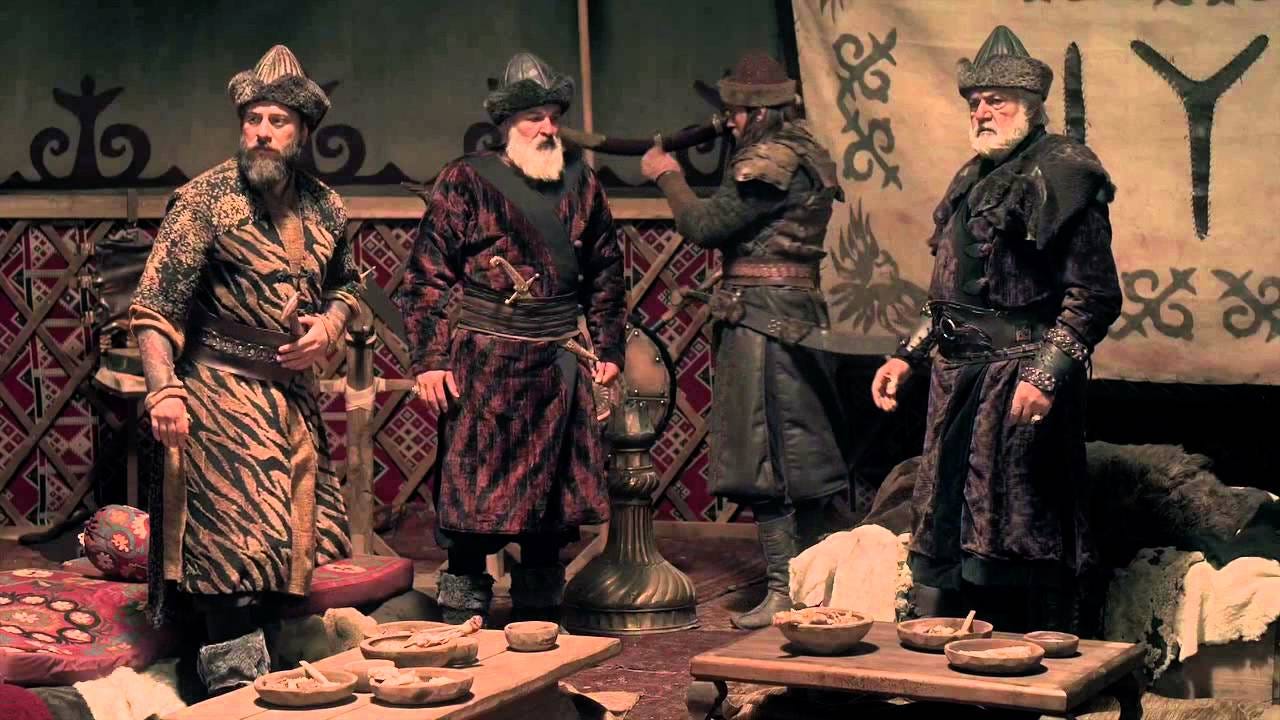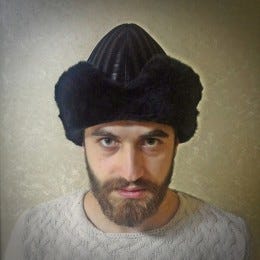This war is going on over a mountainous area called Nagorno-Karabakh. Azerbaijan claims that the area is its own, although the region has been occupied by Armenia since the 1992 war. Historically, this region has been dominated by separatist organizations. This led to several decades of ethnic conflicts. This dispute between the two countries is several decades old. From the early 1980s to 1992, there was a war between the two countries over the region. During that time more than 30 thousand people were killed and more than one million people were displaced. Even after the ceasefire in 1994, there were frequent reports of violence. Both these countries agreed to a ceasefire but never consented to a peace agreement.
Tutorials on DevOps Technologies including Bugzilla, Chef, Docker, Git, Jira, Kubernetes, Puppet, SaltStack, Scrapy, Unix
Thursday, 1 October 2020
Tuesday, 19 May 2020
Monday, 18 May 2020
GET ERTUGRUL SEASON 3 AND 4 ON NETFLIX!!
 Ertugrul is an amazing turkish drama which is watched by millions of people around the world. We need season 3 and season 4 uploaded on Netflix immediately.
Ertugrul is an amazing turkish drama which is watched by millions of people around the world. We need season 3 and season 4 uploaded on Netflix immediately.
When will Resurrection: Erugrul Season 3

As many of you will know by now, Turkey produces some fantastic dramas and many can be.provides us with an otherwise hidden array of gems. Resurrection: Ergual is a historical drama set in 13th-century Turkey where a warrior agrees to fight a sultan’s enemies in exchange for new tribal land.
One important point we need to make about Turkish series on is that the series is often changed significantly from the original broadcast. In the case of Resurrection, the series is not only subtitled, but also the runtimes are tweaked too. 130 episodes are split into two seasons in 45-minute episodes. In Turkey, the show is up to season 4 with episodes ranging from an hour to several hours at a time.
Sunday, 17 May 2020
Who was Ertugrul Ghazi? (ارطغرل کون تھا) - Molana Tariq Jameel Latest Bayan about Ertugrul Ghazi
Resurrection | Ertugrul
The Ottoman Empire (/ˈɒtəmən/; Ottoman Turkish: دولت عليه عثمانيه Devlet-i ʿAlīye-i ʿOsmānīye, literally "The Sublime Ottoman State"; Modern Turkish: Osmanlı İmparatorluğu or Osmanlı Devleti; French: Empire ottoman)[note 5][13] was a state and caliphate that controlled much of Southeast Europe, Western Asia and North Africa between the 14th and early 20th centuries. It was founded at the end of the 13th century in northwestern Anatolia in the town of Söğüt (modern-day Bilecik Province) by the Oghuz Turkish tribal leader Osman I.[14] Although initially the dynasty was of Turkic origin, it was Persianised in terms of language, culture, literature and habits.[15][16] After 1354, the Ottomans crossed into Europe, and with the conquest of the Balkans, the Ottoman beylik was transformed into a transcontinental empire. The Ottomans ended the Byzantine Empire with the 1453 conquest of Constantinople by Mehmed the Conqueror.[17]
During the 16th and 17th centuries, at the height of its power under the reign of Suleiman the Magnificent, the Ottoman Empire was a multinational, multilingual empire controlling most of Southeast Europe, parts of Central Europe, Western Asia, parts of Eastern Europe and the Caucasus, North Africa and the Horn of Africa.[18] At the beginning of the 17th century, the empire contained 32 provinces and numerous vassal states. Some of these were later absorbed into the Ottoman Empire, while others were granted various types of autonomy over the course of centuries.
During his brief majority reign, Murad IV (1623–1640) reasserted central authority and recaptured Iraq (1639) from the Safavids.[80] The resulting Treaty of Zuhab of that same year decisively parted the Caucasus and adjacent regions between the two neighbouring empires as it had already been defined in the 1555 Peace of Amasya.[81][82] The Sultanate of women (1623–1656) was a period in which the mothers of young sultans exercised power on behalf of their sons. The most prominent women of this period were Kösem Sultan and her daughter-in-law Turhan Hatice, whose political rivalry culminated in Kösem's murder in 1651.[83] During the Köprülü Era (1656–1703), effective control of the Empire was exercised by a sequence of Grand Viziers from the Köprülü family. The Köprülü Vizierate saw renewed military success with authority restored in Transylvania, the conquest of Crete completed in 1669, and expansion into Polish southern Ukraine, with the strongholds of Khotyn and Kamianets-Podilskyi and the territory of Podolia ceding to Ottoman control in 1676.[84]
This period of renewed assertiveness came to a calamitous end in 1683 when Grand Vizier Kara Mustafa Pasha led a huge army to attempt a second Ottoman siege of Vienna in the Great Turkish War of 1683–1699. The final assault being fatally delayed, the Ottoman forces were swept away by allied Habsburg, German, and Polish forces spearheaded by the Polish king John III Sobieski at the Battle of Vienna. The alliance of the Holy League pressed home the advantage of the defeat at Vienna, culminating in the Treaty of Karlowitz (26 January 1699), which ended the Great Turkish War.[85] The Ottomans surrendered control of significant territories, many permanently.[86] Mustafa II (1695–1703) led the counterattack of 1695–96 against the Habsburgs in Hungary, but was undone at the disastrous defeat at Zenta (in modern Serbia), 11 September 1697.
Saturday, 21 March 2020
WHO Health Alert brings COVID-19 facts to billions via WhatsApp
JK: Medical officer suspended for refusing to monitor suspected coronavirus cases

Basic protective measures against the new coronavirus
Wash your hands frequently
Maintain social distancing
Avoid touching eyes, nose and mouth
Practice respiratory hygiene
If you have fever, cough and difficulty breathing, seek medical care early
Stay informed and follow advice given by your healthcare provider
Protection measures for persons who are in or have recently visited (past 14 days) areas where COVID-19 is spreading
- Follow the guidance outlined above.
- Stay at home if you begin to feel unwell, even with mild symptoms such as headache and slight runny nose, until you recover. Why? Avoiding contact with others and visits to medical facilities will allow these facilities to operate more effectively and help protect you and others from possible COVID-19 and other viruses.
- If you develop fever, cough and difficulty breathing, seek medical advice promptly as this may be due to a respiratory infection or other serious condition. Call in advance and tell your provider of any recent travel or contact with travelers. Why? Calling in advance will allow your health care provider to quickly direct you to the right health facility. This will also help to prevent possible spread of COVID-19 and other viruses.
Coronavirus latest: Covid-19 cases in Spain rise 25% in 24 hours as outbreak worsens
Spanish cases jump by 25 per cent in 24 hours Daniel Dombey in Madrid The number of documented Spanish cases of coronavirus has increased by almost 5,000 in 24 hours and more than 300 people have died from the virus in that time, according to figures released on Saturday. The Spanish government said there were now 24,926 cases, with 1,612 people in intensive care and 1,326 deaths. Compared with Friday’s figures, this represents a 25 per cent increase on the number of cases, a 40 per cent surge in people in intensive care and a 32 per cent increase in the death toll. Overall, 2,125 people have recovered. Spain’s hospitals and intensive care units are struggling to cope, despite conversion into temporary hotels of some Madrid hotels and of the Fair of Madrid, the capital’s main exhibition space. Madrid remains the worst affected part of the country, with 8,921 cases, 767 people in intensive care and 804 deaths. Joshua Oliver 21 MINUTES AGO Google revamps coronavirus search results after Trump comments Google launched a dedicated website with information about the coronavirus alongside changes to its search results for the virus a week after President Donald Trump touted the company's efforts to inform people about the disease. The company has redesigned its search results pages for the virus including a sidebar with links to official health advice. “This new format organises the search results page to help people easily navigate information and resources”, wrote Google’s Emily Moxley in an online announcement. The changes come a week after President Trump told reporters that 1,700 Google engineers were working on an online tool to help people find out if they should be tested for Covid-19. Google’s new website directs users to local health resources in each US state, with plans to expand to other jurisdictions, but does not offer the personalised testing advice Mr Trump described. The site also includes resources for online education as well as links to Youtube videos on working from home and cooking with non-perishable food items. Google’s fellow Alphabet Inc subsidiary Verily has said it is working with California health officials to help deliver coronavirus testing, with the programme now open in some counties in the San Francisco Bay area. Adam Samson 32 MINUTES AGO Hong Kong re-imposes partial lockdown to fight 'second wave' of outbreak Nicolle Liu reports from Hong Kong: Hong Kong has resumed a partial lockdown as the number of confirmed cases imported from abroad has increased sharply, highlighting the 'second wave' of the outbreak that is sweeping across Asia. Carrie Lam, the territory's chief executive, announced from Monday onwards, public recreational facilitates such as sport grounds and museums will be shut again and civil servants work-from-home arrangement will recommence. Private companies would be encouraged to follow, Ms Lam said. Kevin Yeung, the Secretary for Education, said schools will remain closed until further notice and public exams scheduled to start next week are postponed for a month and oral assessment will be cancelled. “The epidemic from imported cases, is more severe and harder to deal with compared to any time in the past two months, and have a much higher chance to lead to a community outbreak,” said Ms Lam The total of confirmed and probable cases in Hong Kong have reached 294, with most of the recent infections occurring in those coming from abroad or their close contacts. Coronavirus testing will be expanded to asymptomatic elderly individuals or those who are living with them returning from high risk areas from aboard, said Sophia Chan, the Secretary for Food and Health. Ms Lam added that the government is ramping up law enforcement towards those who violate compulsory quarantine orders imposed to all arrivals from all countries and jurisdictions, except Taiwan and Macau, to Hong Kong. Authorities have found seven cases allegedly breaching the rules and they will be prosecuted accordingly, she said. Sid Venkataramakrishnan 53 MINUTES AGO WHO launches WhatsApp service to fight Covid-19 fake news The World Health Organization announced that it is launching a messenger service via WhatsApp to directly provide the public with information about Covid-19. The service offers up-to-date statistics, details on symptoms, advice on how to guard against the virus and a list of common rumours and misinformation. False news and information about Covid-19 have been rife. While social media platforms have been one vector, campaigns spreading fake narratives and inaccurate advice have also used encrypted messenger apps and traditional SMS texting. While Facebook and Twitter have said that there is no evidence of state-backed campaigns on their open platforms, the provenance of much misinformation remains unclear.
Sunday, 16 February 2020
DevOps Model Defined






















